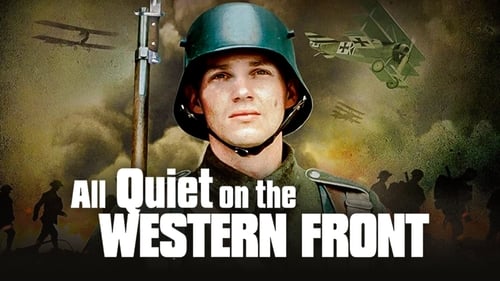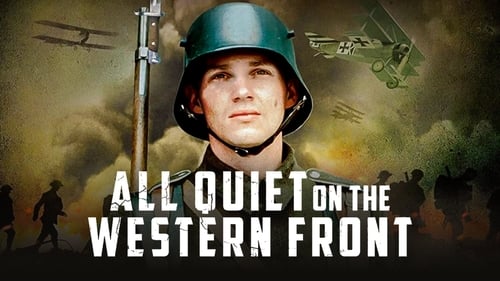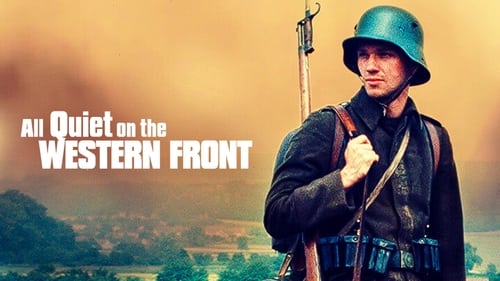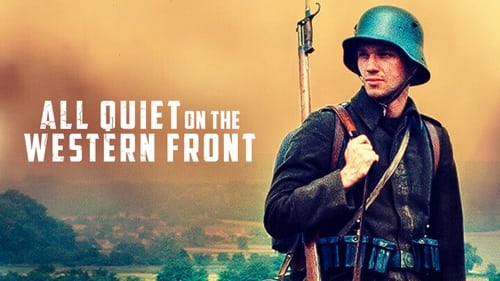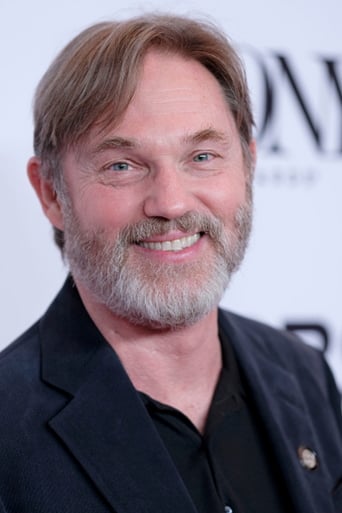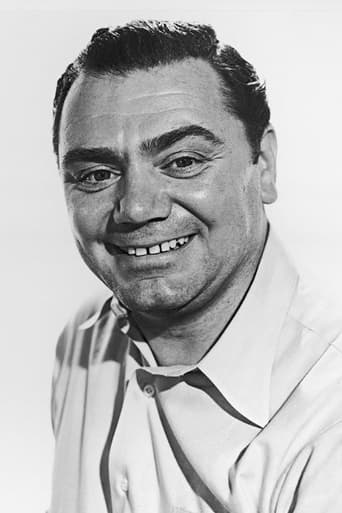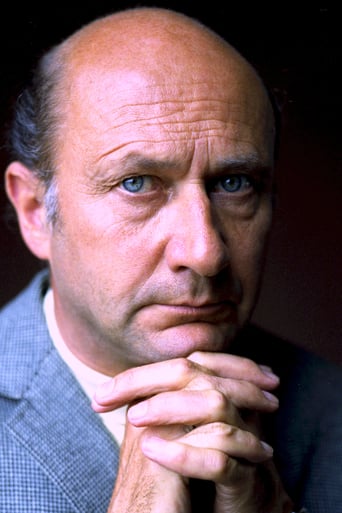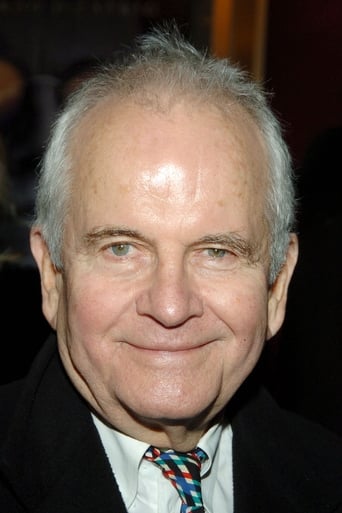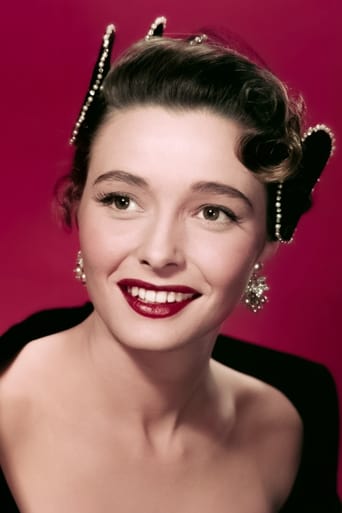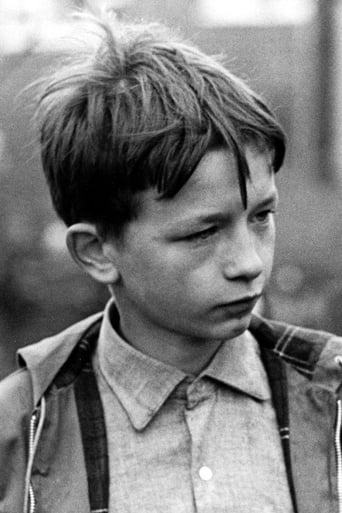BootDigest
Such a frustrating disappointment
Humaira Grant
It’s not bad or unwatchable but despite the amplitude of the spectacle, the end result is underwhelming.
Mandeep Tyson
The acting in this movie is really good.
Dana
An old-fashioned movie made with new-fashioned finesse.
quantum_22
This movie is clearly underrated when compared to THE moral beacon of war movies: "Full Metal Jacket". For several reasons, I find this masterpiece on par with the latter film by Stanley Kubrick.First, there is the clear notion of the "dehumanization process" at the start of both films, but in my opinion, the viewer is better reminded of this process towards the end of this film, when we see the main character reflect on the past years and concludes that he has been transformed into a broken man, only to realize that he will never fit into normal life again. In this respect, the final scene is almost merciful.Secondly, when watching the film I was reminded of an HBO documentary I saw last week about PTSD and war trauma. "All quiet on the Western front" managed to capture the very essence about this condition in a time where the term "PTSD" hasn't even been coined (as far as my sources are accurate, that was only in the next year, 1980, and it was still very much of a mystery at that time).Add to that the superb performances and compelling screen play, and I can only conclude that this film is an absolutely must see!
Emil Bakkum
The Second World War was undoubtedly the most gruesome war ever, but it is the First World War that appeals most to the imagination when reflecting upon the horrors of war. After WWI war has never again been the same. With "Im Westen nichts Neues" Remarque wrote an outstanding account of the misery in the trenches. However, there are many similar novels from that episode. Just from the German side we have "In Stahlgewittern" (Juenger), "Der Mensch ist gut" (Frank), "Der Wanderer zwischen beiden Welten" (Flex), "Jahrgang 1902"(Glaeser), which I read all. The French and English authors have produced similar works. The best possible recommendation of the film is probably, that it closely follows the narrative and the atmosphere of the book. The only critique is perhaps, that it is an English-spoken produce, and so the typical German expressiveness is lost. But what the heck, war is universal. The story is told from the view of Paul Baumer. In 1914 he volunteers together with 20 of his classmates. They are all fine young men, students filled with hopes of a bright future. The chance to spread German civilization fills them with pride, and they glorify the approaching victory. At the front in France they soon discover the gruesome reality. They are confronted with the terrible routine in the trenches. They suffer from the continuous shelling with shrapnel, which kills all living nature, and is invariably followed by the next useless offensive. During the first months they gladly participate in the rush on the enemy barbed wire, shouting "Hurrah!" while being gunned down by the machine gun holes. Soon the school class experiences the first casualties, comrades dying by splinters in their stomach or severed limbs. They fade in the trenches, crawling in the mud and the dirt, hungry and sick in an environment where every sign of beauty has been wiped out. At the end Baumer writes: "Of our group of 20 men, 13 are dead, 4 are missing and 1 has got insane". Anyway, this is about the whole story. The film inspection puts the minimal age for the film at 16, but nevertheless it would be wise to present it in schools. A highly emotional aspect is the proximity of the conflict, since apart from the perpetual anonymous shelling it is still largely a man-to-man fight with drawn bayonets and experimental flame-throwers. You can yet by accident find yourself in a bomb crater, together with an armed enemy volunteer. The offensive is not yet reduced to the status of a computer game. It also helps to place the film into the context of military history. In the nineteenth century the war was still the sovereign right of the absolute ruler. Many intellectuals considered war to be a purifying experience for the people. It was in WWI, that the technological progress began to allow for mass slaugther. Of course the artillery had become highly effective, but there were also the airplanes, the poisonous gas, the first armoured cars and tanks, flame-throwers, machine guns etc. Surgery advanced dramatically. The mass destruction reached proportions, that surpassed the contemporary human imagination. Man lost what had remained of his innocence. It was this war, that ended the remaining absolute monarchies and even caused the birth of an entirely new society system in Russia. It created the first insane forms of art (Dada), and strongly furthered the foundation of pacifism and the League of Nations. You must see this film: not because of the acting or the nice shots, but because you have to know.
ArizonaKnightWolf
One of the best war movies of all time, if not one of the best movies of any kind, is the 1930 version of Erich Maria Remarque's excellent novel, ALL QUIET ON THE WESTERN FRONT, featuring Lew Ayers. All remakes should be judged against that great film. As such, this remake, featuring Richard Thomas, comes close to matching the original in making a person think and feel about war in general, but somehow leaves the viewer a little flat in the end.There are some scenes which are underplayed in this remake. For instance, in the 1930's version, Corporal Himmelstoss is known to the recruits before the war and basic training as the town postman. This is a central point to there feeling about him and their treatment of him, both during boot camp and afterward. By not including this small fact, something is lost to the over point of the movie. In the original, Himmelstoss is a character whose actions, especially during training, allow the viewer to feel more deeply towards him, and helps explain his actions on the field of battle later on.Towards the beginning of the film, Paul is explaining that it is a good day because they have each received double rations. In the 1930 version, the reason behind the double rations is more evident and poignant.But for these small drawbacks, this is still one hell of a good film, and should be seen by all war movie fans, and even fans of novel from which it was made.
Michael DeZubiria
It is strange that a made-for-TV-remake (and yes, this is definitely a remake) of the Best Picture winner from 1930 should be so easily as good, and probably better, than the original. This is a special situation because most of what needed improvement in the original was not things that required special effects or much movie magic (the battle scenes, for example, are outstanding in both films), but the realism of it all, specifically things like life on the battlefield, realistic dialogue, and clumsy thematic delivery.FIrst of all, the movie starts right out on the battlefield and is pretty impressive right away. Donald Pleasance is wonderful as the German propaganda teacher buttering the young men up for enlistment, and very soon you'll notice that a lot of the scenes are taken directly out of the original except, as I mentioned, now the realism is updated, which is extremely important.All Quiet on the Western Front, love it or hate it, is one of the most famous anti-war films/books of all time, and because of that, most of the more memorable scenes in the film are meant to deliver this message, but some work and some don't work so well. There is a scene, for example, where the new recruits line up in front of the train and see the wounded being brought back before their very eyes. It's a moving scene, to be sure, but I imagine removing the badly wounded soldiers right in front of the new soldiers heading to the front lines would have been considered bad taste even during World War I. Especially in propaganda-heavy Germany.Speaking of which, the fact that the movie is told from the German perspective is a bit of a difficult area for the film, since it stars almost entirely American and British actors, and we only know they're German, other than from a background knowledge of the story, because it's mentioned a few times through dialogue.The point of the story is to illustrate the difference between gloriously fighting for your country and the reality of trench-warfare. As soon as the new recruits arrive at the front, Ernest Borgnine, in an exceptional performance as Kat, the most experienced private on the front lines, quickly lets them know that even after all of their training, they don't know a single thing about war ("In training camp they fill you full of fancy information on how to be a soldier. We're going to work hard to forget all that."). While most of the more clunky scenes are smoothed out in this remake, some of them are still pretty obvious. I was happy to see that the scene where Paul Baumer, one of the main characters, kills a Frenchman in hand-to-hand combat and then bitterly remorses the act afterwards is changed, but it's not changed much. He mortally injures the man and is then stuck in a hole with him until morning, when he finally dies. He does give a bit of a ham-handed speech, but at least it's more realistic than the original. More importantly, this time it takes the focus away from the pointlessness of war deaths and turns it to the politicians, who come across as warmongers ("We could be brothers. But they never want us to know that. They never want us to know..."). Makes you shudder to think of them generating hatred among young men like puppet-masters so they can send them over to further their agendas. The end of the film faithfully re-creates the end of the original, with Baumer taking a trip home due to an injury, only to be confronted with the reality that his country is completely removed from what is really happening on the western front. It's strange though, that when he embarks on his 16 days of convalescent leave, he does so in full battle gear - helmet, grenades, rifle and everything. Seems like that might be a little unnerving to the public.Nevertheless, the movie certainly gets its point across, but it still leaves me with the feeling that it can still be so much more. It is a very effective piece of anti-war cinema, but even with all of the improvements since the 1930 version, it is still not authentic.

